Tooth decay is a serious problem for many people. The good news is that you can take steps to prevent it from occurring, and there are treatment options available if you already have them.
To learn more about what causes this condition, how it can be prevented, and how it can be treated, read on.
What Is Tooth Decay
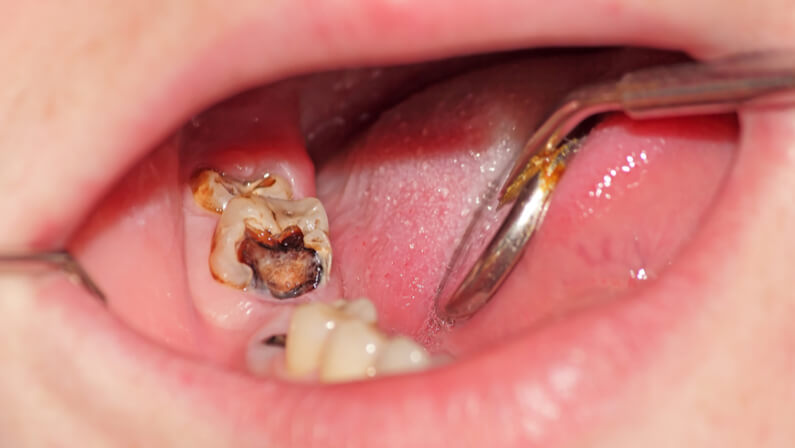
Tooth decay is a bacterial infection that rots the tooth from the inside out. Plaque, which is a sticky film of bacteria that forms on your teeth, is what causes tooth decay.
Plaque can be prevented by brushing regularly and flossing every day.
If you have a problem with cavities, you should see your dentist for treatment as soon as possible to avoid further damage to your teeth.
Who Is At Risk For Tooth Decay?
Anyone can develop tooth decay, but certain factors can increase your risk.
Your teeth are at risk if you:
- Have a diet that includes lots of sugary foods, such as soda, candy, and other sweets.
- Drink large amounts of fruit juice or other liquids that contain sugar, such as sports drinks.
- Eat food that is allowed to sit on the teeth for an hour or more. This includes chips, popcorn, and french fries.
What Causes Tooth Decay
Tooth decay is a process that begins with the food particles left on your teeth after you eat. The bacteria in your mouth begin to break down these food particles, releasing acids that eat away at your teeth, causing them to become weak and break down over time.
Tooth decay can be caused by:
- Bacteria in plaque on your teeth
- Sugary foods, drinks, or snacks that stick to your teeth for too long
- Not brushing or flossing regularly enough
- Not going to the dentist regularly for checkups
What Are Symptoms Of Tooth Decay

You normally don’t notice any symptoms of early tooth decay. As tooth decay progresses, it can lead to:
- Having a toothache (tooth pain)
- Sweet, hot, or chilly tooth sensitivity
- Stains on the surface of a tooth that is white or brown in color
- An infection can lead to the formation of an abscess (a pus-filled pocket).
- Pain, face swelling
- Fever
How To Prevent Tooth Decay
Here are some tips on how to prevent tooth decay:
- Brush your teeth twice a day with fluoride toothpaste
- Floss every day and rinse with mouthwash
- Eat a healthy diet that includes plenty of fruits and vegetables
- Drink plenty of water each day (at least 8 glasses)
How To Treat Tooth Decay
There are several different methods of treating tooth decay, including fluoride treatments, fillings, crowns, root canals, and tooth extraction.
Early-Stage Fluoride Treatments
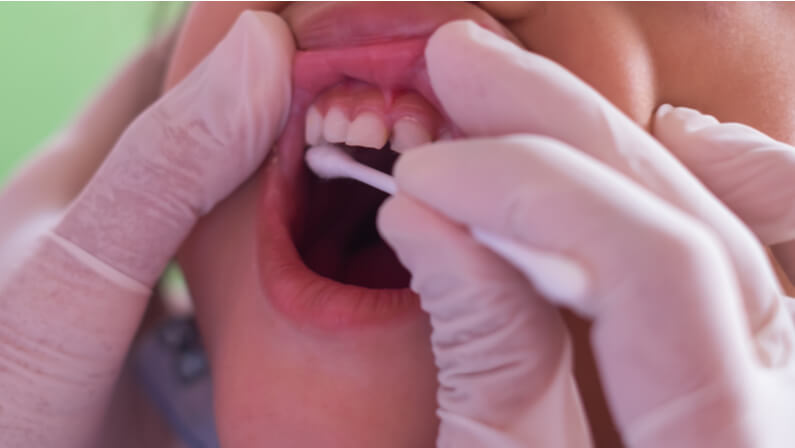
Fluoride treatments are often used to help prevent tooth decay in people who have an increased risk of developing cavities based on their age or lifestyle.
These treatments are usually administered by a dentist or dental hygienist during regular visits to the dentist’s office.
In comparison to toothpaste, mouthwash, and tap water, professional fluoride treatments provide a higher concentration of fluoride.
Fillings
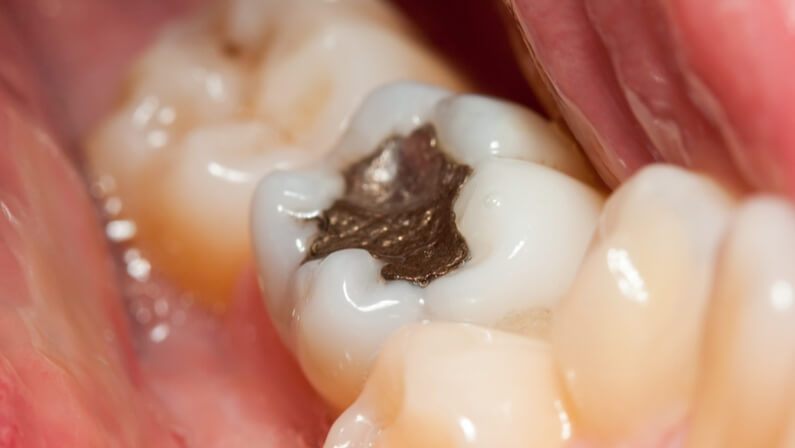
Fillings are one of the most common ways to treat tooth decay in the early stages of development. A filling is made from a composite resin material that fills in the cavity created by the decay and helps prevent further damage to your tooth enamel.
Crowns
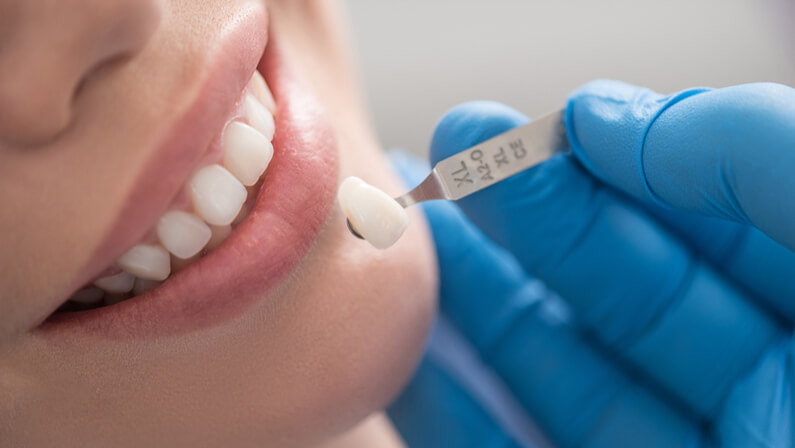
Crowns are another option for treating early-stage tooth decay; they’re also known as caps because they cap off exposed roots and provide extra strength
Root Canals
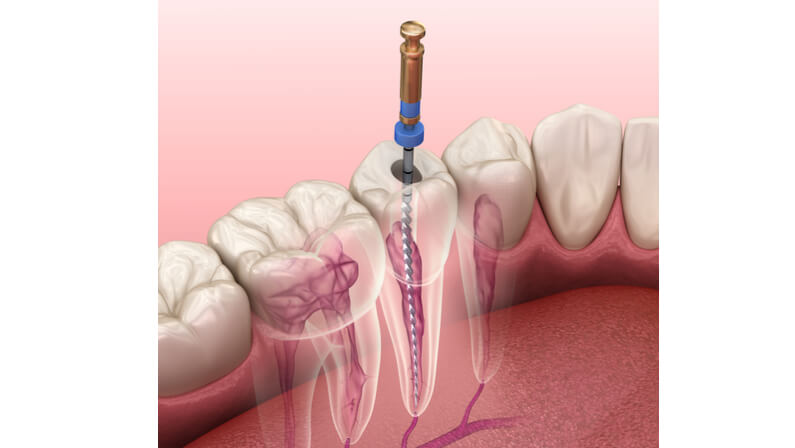
Root canals are required when the pulp inside the tooth has become infected and must be removed.
This is done by drilling into the root canal system and removing any infected tissue before filling it with a filling material so that it does not become infected again in the future due to bacteria entering through cracks along its surface area.
Tooth Extraction

Tooth extraction is a surgical procedure in which a tooth is removed from the mouth. It can be necessary for several reasons: to remove a tooth that has become infected, to alleviate pain from a toothache, or to prevent further damage to a healthy tooth.
How Is Tooth Decay Diagnosed?
The dentist will perform a thorough examination, looking at your teeth and gums for signs of tooth decay. An x-ray can be taken to look for cavities or other problems in the tooth structure.
Brownstone Dental‘s staff is well regarded as providing the best dental care in the Houston community. We provide quality dental care at an affordable price for the entire family. You may rely on our experienced aesthetic dentists for anything from tooth extractions to dental implants. Cosmetic dental services we offer include partials, dentures, fillings, and more!
What Are The Complications Of Tooth Decay
Tooth decay can lead to various issues, including:
- The tooth can be damaged or even broken.
- Gum disease, often known as gingivitis, is a painful and inflamed condition of the gums.
- Gingivitis can progress to periodontitis, which is a more serious form of gum disease.
- Dental abscesses are pus-filled swellings caused by dental plaque in advanced cases of tooth decay.
- Children and adults may miss school or work due to tooth pain caused by decay.
Prevent Tooth Decay
Tooth decay can cause damage to your teeth that is irreversible, but you can take steps to prevent it from happening by making sure you are brushing and flossing regularly. If you have already experienced symptoms of tooth decay, see a dentist about getting it treated as soon as possible so that it doesn’t get worse.